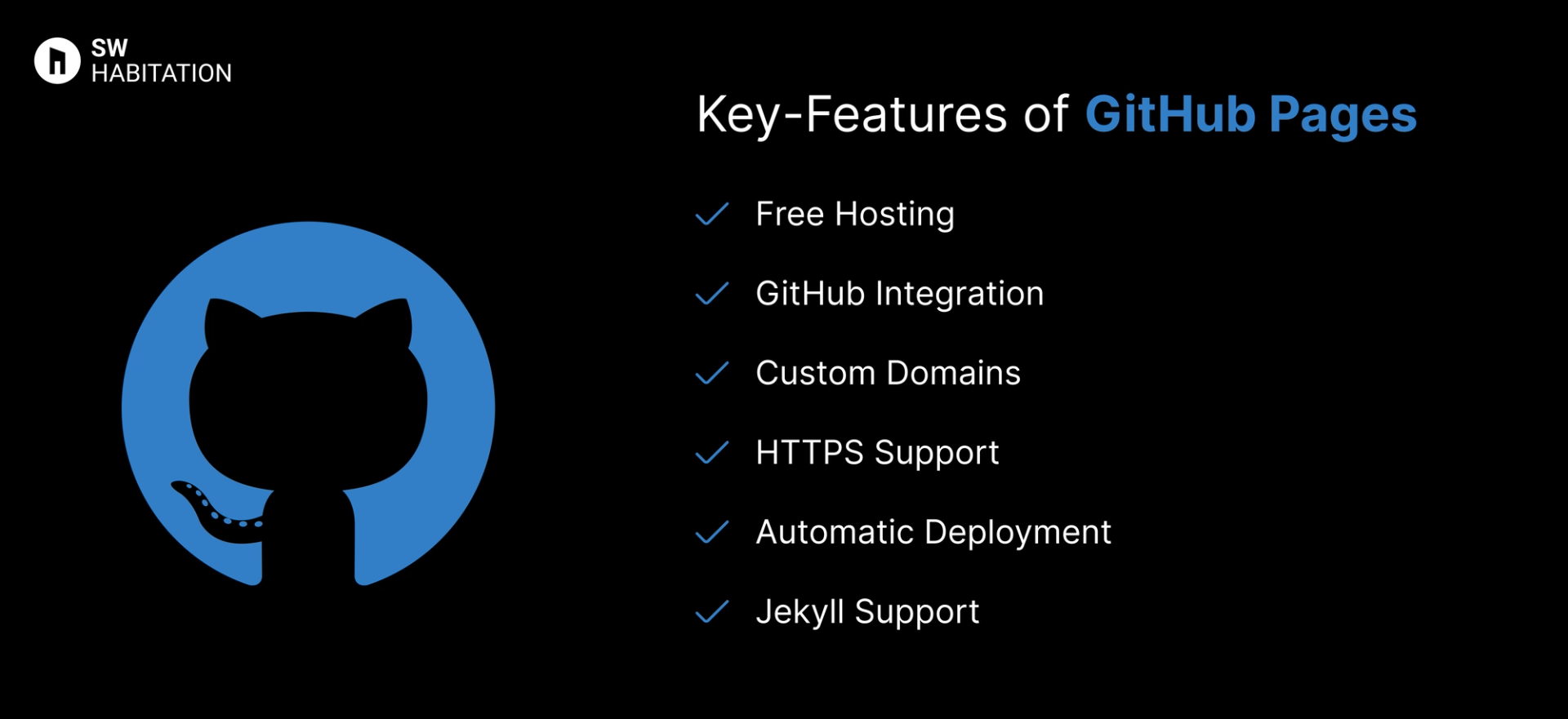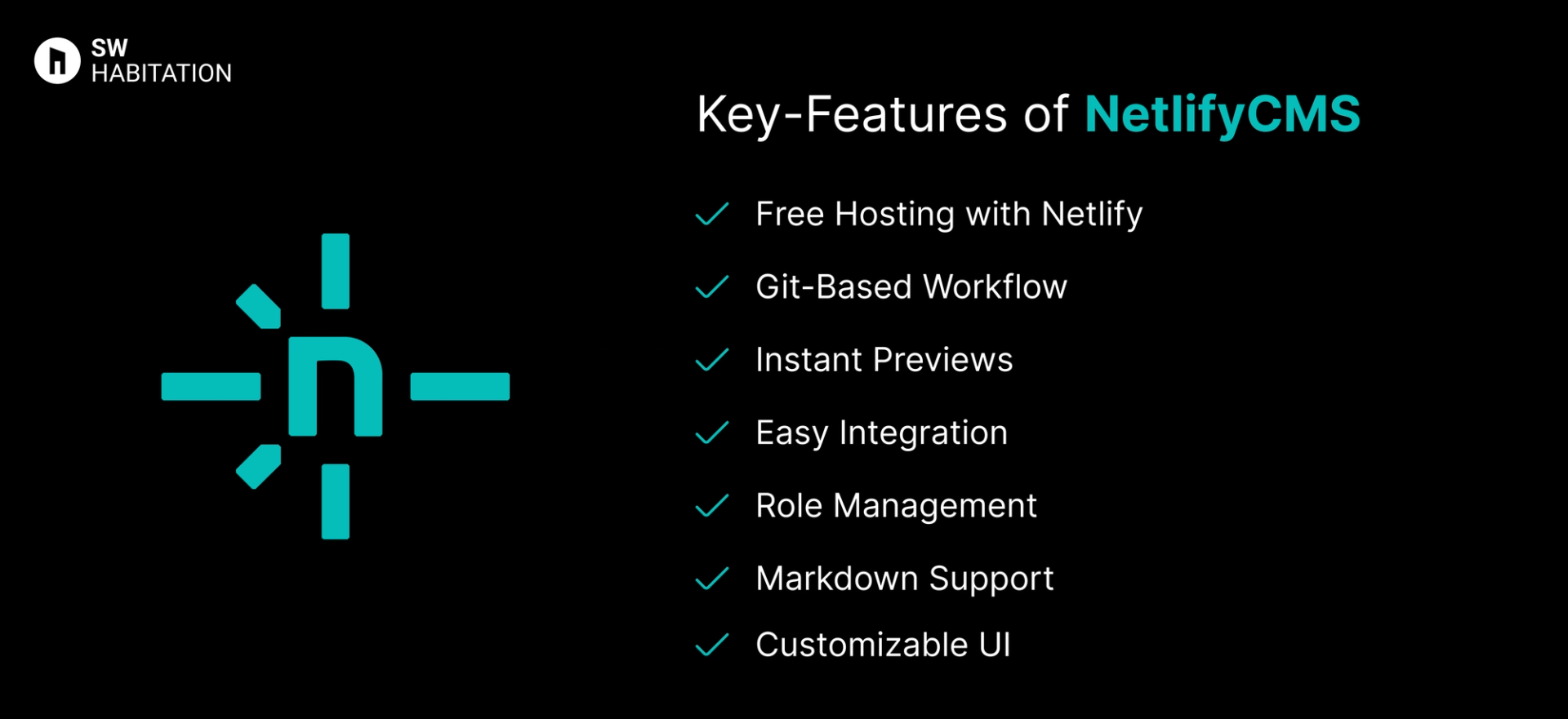GitHub Pages vs. NetlifyCMS

GitHub Pages

NetlifyCMS
You know when you’ve finished building your website and just want to get it online without dealing with all the techy stuff? That’s where deployment platforms help. They make it super easy to put your site live, just connect your code, click a button, and it’s up and running. No need to worry about servers or complicated setups.
They also take care of the important things like speed, security, and updates in the background. So while they handle the heavy stuff, you can focus on making your website look good and work great. It's simple, right?
What is GitHub Pages ?
GitHub Pages is a static site hosting service directly integrated with GitHub. It allows you to serve static content like HTML, CSS, and JavaScript straight from your GitHub repository. You can automatically deploy sites by pushing code to specific branches, making it a hassle-free option for developers of all levels.
Key Features of GitHub Pages


- Jekyll Support: Built-in support for Jekyll static site generator.
- Automatic Deployment: Push to the main branch, and your site is live.
- Free Hosting: No cost, no catch.
- Custom Domains: Use your own domain name.
- HTTPS Support: Free SSL certificates for secure browsing.
- GitHub Integration: Deploy directly from your repository.
Advantages of GitHub Pages
- Great for Open Source: Ideal for documentation and project showcases.
- Custom Domains: Easily configure your own domain.
- Easy Setup: Simple integration with GitHub repositories.
- Automatic Deployment: Deploy directly by pushing changes.
- Free of Charge: No hosting fees, ever.
Disadvantages of GitHub Pages
- No Built-in CI/CD: Limited automation compared to other platforms.
- Static Content Only: No server-side logic or databases.
- Repo Visibility: Free plans require public repositories.
- Limited Customization: Not as feature-rich as other platforms.
What is NetlifyCMS ?
NetlifyCMS is an open-source headless CMS built to work with static site generators like Gatsby, Hugo, and Next.js. It gives you a simple web-based UI to manage your content while storing everything directly in your Git repository. This means every change you make is version-controlled, just like your code.
Key Features of NetlifyCMS


- Free Hosting with Netlify: Deploy instantly with Netlify for free.
- Git-Based Workflow: All content changes are stored as commits in your Git repository.
- Instant Previews: See how your content will look before publishing.
- Easy Integration: Works seamlessly with static site generators like Gatsby, Hugo, and Jekyll.
- Role Management: Assign roles to control who can edit what.
- Markdown Support: Write content in Markdown and preview changes in real time.
- Customizable UI: Tailor the admin interface to fit your content structure.
Advantages of Netlify CMS
- Simple Setup: Easy to integrate with Git and static site generators.
- Free to Use: Open-source and works perfectly with Netlify’s free tier.
- Version Control: Content changes are tracked in Git, ensuring full transparency.
- Fast Deployment: Deploy instantly with Netlify.
- Markdown Support: Write clean, lightweight content with Markdown.
Disadvantages of Netlify CMS
- Not Ideal for Large Projects: Better suited for smaller projects.
- Git Dependency: Requires familiarity with Git workflows.
- Limited Integrations: Fewer built-in integrations compared to larger CMSs.
- No Database: Content is stored as files in Git, not in a traditional database.
Comparison Between GitHub Pages vs NetlifyCMS
Use Cases of GitHub Pages
- Project Documentation: Ideal for open-source project documentation.
- Learning Projects: Great for practicing web development and deployment.
- Blogs and Static Sites: Pair with static site generators like Jekyll or Hugo.
- Personal Projects and Portfolios: Quick, free hosting for personal websites.
Use Cases of NetlifyCMS
- Personal Blogs: Simple and fast content management for personal sites.
- Portfolios: Showcase your work with minimal setup.
- Small Business Websites: Perfect for static websites that don’t require complex features.
- Developers Who Love Git: Version control your content the same way you do with code.
Other Resources
Conclusion
Deployment platforms are a total game changer if you’re looking to launch your website quickly, reliably, and without any trouble. Whether it’s a personal portfolio, a startup site, or a growing business platform, they handle the technical heavy lifting like hosting, security, and scalability so you can stay focused on building great experiences for your users.
You’re not boxed into a single approach. Most platforms integrate smoothly with the tools and frameworks you already love, letting you deploy directly from your Git repository, preview updates, and roll back with ease. With lightning-fast performance and dependable uptime, deployment platforms simplify the path from code to production. Pick the one that aligns with your workflow, and you’re all set to launch with confidence 🚀
Frequently asked questions
Is GitHub Pages free to use?
Yes, It’s completely free for public repositories, with no hosting fees. You can also host private repositories with GitHub Pro or a paid plan.
What kind of sites can I host on GitHub Pages?
Only static sites like portfolios, blogs, documentation, or landing pages. It doesn’t support server-side code like PHP or Node.js.
Does GitHub Pages support HTTPS?
Yes, It automatically provides HTTPS support, even for custom domains via Let’s Encrypt.
What is Netlify CMS?
Netlify CMS is an open-source content management system. It is designed for static site generators. It provides a user-friendly interface for editing content stored in Git repositories.
Is hosting on Netlify required?
Nup, While it integrates seamlessly with Netlify, you can use it with any Git-based static site hosted anywhere.
What static site generators are supported?
Netlify CMS supports popular generators like Hugo, Jekyll, Gatsby, Eleventy (11ty), and others.
